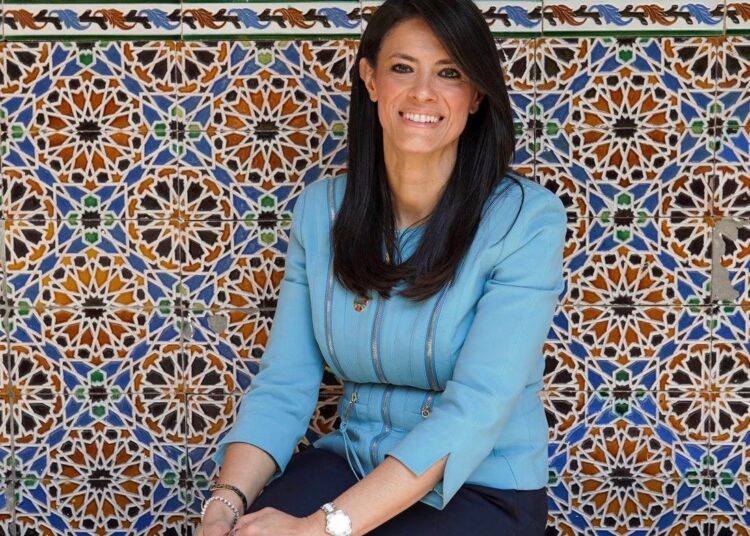Minister of International Co-operation Rania el-Mashat participated in a high-level session that is part of the 2021 Development Cooperation Forum.
Organised by the United Nations Economic and Social Council (ECOSOC), the forum discusses the role of development cooperation in facing the risks posed by the Covid-19 pandemic.
Many high-ranking officials from around the world, including UN representatives, attended the event.
El-Mashat said the world has witnessed an unprecedented health crisis that began in early 2020 with the outbreak of the Covid-19 pandemic.
“This has led to severe economic and social repercussions that, in turn, brought about radical change in the concept of development cooperation and development plans,” el-Mashat said.
“As it brought opportunities, the situation also emphasised the urgency for efforts to achieve the UN’s Sustainable Development Goals (SDGs),” el-Mashat added.
“The repercussions caused by the pandemic are a global call for change and re-prioritisation, as effective development co-operation is more important than ever before in order to be able to address the new challenges that came with the health crisis,” she said.
“The pandemic has also prompted decision-makers and officials around the world to review the traditional way of making decisions, and today, the decision-making process is more aware of the potential risks and has thus taken in new dimensions of thinking.”
The minister went on to discuss the steps that Egypt took to address the challenges of the pandemic, as the country adopted a set of health and preventive measures to slow the spread of the virus, while providing the necessary health care, raising community awareness, and mitigating economic and social repercussions.
The minister added that in recent years, the country had adopted an economic and social reform programme that strengthened Egypt’s resilience during the pandemic. These reforms also represented a strong basis for structural reforms that were recently announced by Egypt.
The reforms include a multi-sectoral approach through a set of measures and procedures to face the new challenges created by the pandemic, while ensuring resilience, sustainability, and proactive risk management.
El-Mashat stressed that Egypt is determined to move forward with development and reform plans despite the pandemic.
She stated that the structural reform programme is in its second phase and is based on a vision that is centred on three sectors contributing to progress in development, technology-intensive manufacturing industries, agriculture, and communications and information technology.
El-Mashat said one of the opportunities that arose during the pandemic was the accelerated pace of digital transformation as the spread of technology has aided in building back a better, and greener future.
The minister said Egypt, in cooperation with the Food and Agriculture Organization (FAO) and the International Fund for Agricultural Development (IFAD), is studying the impact of the pandemic on the agriculture and food security sector in order to assess potential risks.
El-Mashat said that her ministry has redesigned effective development co-operation maps to push efforts towards achieving the SDGs, by matching ongoing projects with the 17 UN goals, so that multilateral and bilateral partners are able to track projects that have been implemented.
With regard to private sector participation, el-Mashat said Egypt not only values the important role it plays in terms of financial resources but also through the exchange of knowledge, capacity building, and increase in opportunities.
In 2020, the ministry secured $3.2 billion development financing allocated to private sector companies and directed to SMEs in form of credit lines through commercial banks.
Striving for sustainable development, Egypt issued its first green bonds sovereign offering worth $750 million by the end of 2020.
Moreover, the country has pioneered in the renewable energy sector with its flagship $2 billion Benban Solar Park project that employs over 4,000 people.






Discussion about this post